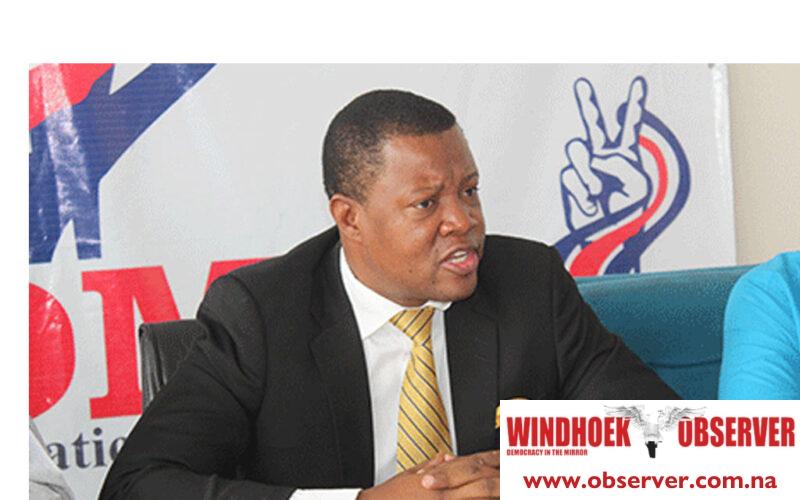Stefanus Nashama
McHenry Venaani, leader of the Popular Democratic Movement, has called into question the statement released by the Presidency this week.
The statement attempted to clarify President Hage Geingob’s controversial remarks on the genocide, made during a lecture in France last month.
In his lecture, Geingob drew comparisons between the 1904-1908 genocide and apartheid, controversially claiming that apartheid was more severe than the genocide. He also argued that many who never previously cared about the genocide issue are now positioning themselves at the forefront of the debate.
Venaani, responding yesterday, noted that Geingob’s remarks have ignited considerable debate. He alleged that the statement from the Presidency was merely an effort to sidestep potential embarrassment.
Venaani felt compelled not only to address the Presidency’s statement but also to correct inaccuracies contained in it.
“Despite President Geingob’s claims that the Ovamboland People’s Organisation (OPO) was a leading voice in recognizing the genocide, they actually only began addressing it in 2004,” Venaani countered.
He added that he possesses evidence from the 1980s showing OPO’s commitment to avoiding the genocide topic altogether.
“It’s critical to emphasize that opposition parties and leaders were at the forefront of this fight well before others acknowledged it. Specifically, the Democratic Turnhalle Alliance (DTA) and the National Unity Democratic Organization (NUDO) were instrumental from the very beginning,” Venaani said.
Challenging the Presidential statement that opposition leaders remained silent on the genocide during apartheid, Venaani cited instances to the contrary.
For example, in 1947, Chief Hosea Kutako addressed the issue in a petition at Okahandja. Later, in 1975, Chief Clemens Kapuuo brought up the issue at a United Nations’ fourth committee meeting. Moreover, in 1989, Chief Riruako, Fanuel Kozonguizi, and Katutire Kaura discussed the topic with Hans-Dietrich Genscher, the then Federal Minister for Foreign Affairs and Vice Chancellor of Germany.
According to Venaani, these events are clear evidence that opposition leaders have long been advocates for addressing the genocide issue.
He expressed concern over the Presidency’s attempt to dismiss these historical truths, leading to national contention.
“We deserve an honest and complete recounting of history, especially when confronting events as monumental as the genocide,” Venaani said.
He stressed that President Geingob should stand by his statements rather than retract them, emphasizing that these comments are now part of the public record.
Recently, Geingob’s claims have drawn criticism, notably from opposition leaders. This includes Independent Patriots for Change (IPC) Leader, Panduleni Itula, who warned that such remarks might perpetuate injustices in the country.




